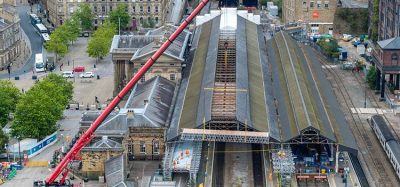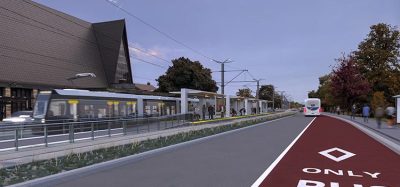Analysis finds that rail freight could boost UK economy by £5.2bn annually by 2050
Posted: 1 March 2023 | Elliot Robinson (Editorial Assistant - Global Railway Review) | 2 comments
Analysis commissioned by Rail Partners has shown that if rail freight is trebled by 2050 the sector will deliver nearly £5.2bn in economic benefits.


Credit: Rail Partners
Rail Partners – the trade body bringing together the five biggest freight operators who move 99% of the country’s rail freight – has launched a new report which revealed that a growing rail freight market, supported by the right policies, can deliver significant economic and environmental benefits between now and 2050.
The report, entitled Freight expectations: How rail freight can support Britain’s economy and environment, includes independent analysis by Aether, the University of Hull’s Logistics Institute and Railfreight Consulting which demonstrates rail freight’s continued environmental advantage over the road haulage sector. It also shows that, if the rail freight sector is supported by the right policy environment, it can flourish and help support a more prosperous, greener economy in the future.
When comparing road and rail flows, Aether concluded a typical freight service produces 76% less CO2 per tonne than the equivalent movement by road. By operating longer and heavier freight services, freight operators are significantly improving productivity and growing the freight market. Analysis shows these innovative services ease road congestion by removing up to 129 HGVs from the road network per train, while further enhancing rail freight’s carbon and air quality performance.
If Government sets an ambitious target to treble rail freight by 2050, the sector will deliver nearly £5.2 billion in economic benefits as a minimum. It will also support road decongestion and improved air quality, with the sector forecast to remove the need for over 20 million HGV journeys annually.
Related content you will enjoy:
Research project finds way to enable more freight by rail
Research finds better connected public transport can cut car usage
“With the right support, rail freight can deliver for Britain – boosting the economy and reducing carbon emissions as well as improving air quality and reducing congestion, especially in cities,” Andy Bagnall, Chief Executive for Rail Partners, said. “We welcome recent commitments to deliver rail reform and must now focus on the detail. Setting an ambitious rail freight growth target – underpinned by legislation – is critical to capturing the benefits that a vibrant rail freight sector can offer.”
“Environmental sustainability has been at the heart of our business for over 40 years, and our new rail freight facility is a critical part of our commitment to tackling climate change and being a considerate neighbour to the local community,” Morwen Mands, Head of Sustainability at Highland Spring Group, said. “We believe the landmark project in Blackford is an excellent example of the power of partnership working between the rail industry, government and business which will provide wider benefits to the Scottish environment and economy. We hope this facility inspires other businesses to explore using rail freight to support their own journey to net zero.”
Realising an ambitious target to treble freight will require a largely private rail freight sector to work in partnership with government. Freight operators and their customers will need to invest in new assets and infrastructure to grow and decarbonise the freight sector. To provide freight operators with the confidence to make these investments, Rail Partners and its members have called for government to deliver the following policy framework:
- Setting an ambitious growth target of trebling rail freight by 2050
- Maintaining a stable access, charging and performance regime
- Making optimal use of existing capacity on the rail network
- Targeted infrastructure investments on areas of the network with high freight growth potential
- An expansion of incentives to make rail the mode of choice for freight customers.
Related topics
Cargo, Freight & Heavy-Haul, Funding & Finance, Regulation & Legislation, Sustainability/Decarbonisation









For a sustainable railway, that sustainably provides what Market demands, now Railway investments has to be at a standard, safely providing margins for future added load, etc.
(Current standard, regrettably is not sustainable. Repairing, frequent costly “optimal attending maintenance” is not optimal…)
A New Old Railway urgently is needed!
Increasing rail freight haulage is just common sense really. When HS2 is complete it will also free up WCML for rail freight – and hopefully create opportunities for much faster freight services. The question is… do our politicians have the necessary vision?